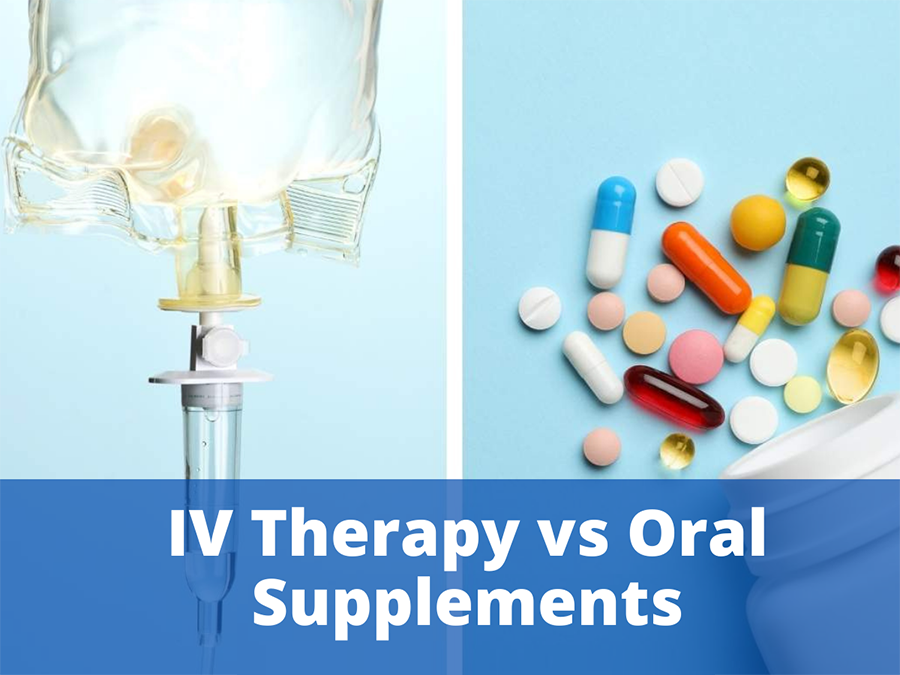
What is Fatigue?
Fatigue is more than just feeling tired; it's an extreme exhaustion that can make getting up in the morning and going about your day a real challenge. Many factors, including health conditions and lifestyle choices, can trigger this fatigue. It's like having an overwhelming urge to sleep, but even after resting or sleeping, you might not feel refreshed
Types of Fatigue
Understanding fatigue can be quite complex. It can manifest in various forms and linger for different durations. Here, we'll explore different types of fatigue:
- Acute Fatigue
- Prolonged Fatigue
- Chronic Fatigue
- Chronic Fatigue Syndrome (CFS)
- Work-Related Fatigue
Causes of Fatigue
Physical Causes for Fatigue
Numerous health issues can lead to fatigue. Some common examples are anemia, dehydration, deficiencies in vitamins and minerals (such as vitamin D, B12, B6, iron, and various minerals), fibromyalgia, chronic fatigue syndrome, infections, Addison's disease, a disorder influencing hormone levels, hypothyroidism, hyperthyroidism, insomnia, and chronic obstructive pulmonary disease.
Psychological Causes for Fatigue
- Depression
- Anxiety and Panic
- Eating Disorders
- Substance Misuse Disorders
- Somatization Disorder
Lifestyle Factors
This category encompasses various aspects of how you live, including:
- Physical exertion
- Insufficient physical activity
- Sleep deprivation
- Overweight or obesity
- Medications, such as antidepressants or sedatives
- Alcohol consumption
- Illicit drug use, like cocaine
- Excessive caffeine intake
- Poor dietary habits and nutrition.
Symptoms of Fatigue
Fatigue can present itself in various ways, including:
- Feeling down and losing interest in activities you used to enjoy
- Struggling with concentration and focus.
- Experiencing nervousness, anxiety, or irritability.
- Dealing with muscle pain and weakness.
- Having tired and heavy eyes and legs.
- Overwhelming fatigue throughout your entire body.
- Suffering from stiff shoulders.
- A general sense of discomfort or uneasiness, often accompanied by impatience
When to Call a Healthcare Provider About Fatigue?
Seek medical attention if:
- Fatigue persists beyond a few days.
- It impairs your ability to work or do daily tasks.
- No clear cause, like a recent illness, is evident.
- Fatigue suddenly appears.
- You're experiencing unexplained weight loss.
Treatment for Fatigue
Lifestyle Modifications
- Practice Good Sleep Habits
- Avoid Alcohol and Substance Use
- Eat A Healthy Diet
- Reach and Maintain a Healthy Weight
- Exercise Often
- See Your GP To Rule Out Infections
- eficiencies of vitamins & Other Health Conditions
Medical Treatments and Medications for Fatigue
There’s no specific medicine for treating fatigue but medicine can be used to relieve some of the symptoms
- Over The Counter Pain Killers
- IV Hydration
- Correction Of Vitamins and Minerals with IV therapies
- Chronic Fatigue Syndrome Is Sometimes Treated with Antidepressants
Diagnosing Fatigue
Unfortunately,there are no specific tests to diagnose fatigue itself, but there are criteria used for diagnosing Chronic Fatigue Syndrome (CFS):
- The primary symptom is persistent fatigue.
- Symptoms must persist for at least six months and be present more than 50 percent of the time
- Other symptoms, particularly myalgia (muscle pain), mood disturbances, and sleep disruptions, must also be present.
Certain patients should be excluded from a CFS diagnosis, such as those with established medical conditions known to cause chronic fatigue, like schizophrenia, manic-depressive illness, substance abuse, eating disorders, or proven organic brain diseases.
Fatigue FAQs
Can fatigue be a sign of a more serious medical condition?
Yes, If It Get Worse or Last More Than a Week with Low Grade Fever, Weight Loss or Abnormal Bleeding or lymphadenopathy
How can I manage fatigue on a daily basis?
- Eat Good
- Lose Weight
- Get Moving
- Sleep Well
- Cut On Alcohol and Caffeine
How does stress relate to fatigue?
Fatigue isn't solely physical; it can also result from mental and emotional stress, even when the signs aren't immediately apparent.
Recent Posts
-

Anti-Aging IV Drip Therapy Benefits and How It Works
Ageing is a natural biological process that affects every living organism over time. As humas, when we age, cellular repair slows down, hydration levels decrease, oxidative stress increases, and essential nutrient absorption becomes less efficient.
January 24, 2026 -

IV Therapy vs Oral Supplements: Which Is More Effective?
Many people take daily supplements because they feel like a part of their routine, but the body does not process every tablet the way anyone expects or believes it does. Some days, absorption can be steady; other days, it can't be guaranteed, for reasons that have little to do with the dose itself... Read more
January 21, 2026 -

Types of STD Tests: Blood, Urine, Swab and Rapid Tests Explained
STD testing is considered essential for early detection, accurate diagnosis, and effective treatment of sexually transmitted infections. Many STDs show little or no symptoms, making regular screening an important part of sexual health and wellbeing ... Read more
January 16, 2026 -

How Modern Labs Detect STDs: The Science Behind the Tests
Sexually transmitted infections can often stay silently in the body, sometimes creating subtle changes that leave a person uncertain about what is happening. Modern diagnostics and STD/ STI lab tests help bring clarity by studying tiny pathogens that the body is being exposed to long before it becomes an actual health risk.
January 06, 2026 -

Multivitamin IV Drip: How Beneficial Are They?
A Multivitamin IV Drip is a sterile infusion that combines nutrients such as vitamin C, B-complex vitamins, magnesium, and calcium in a balanced, hydrating solution. At Health Call, this popular treatment is used to support overall hydration ...
December 10, 2025




